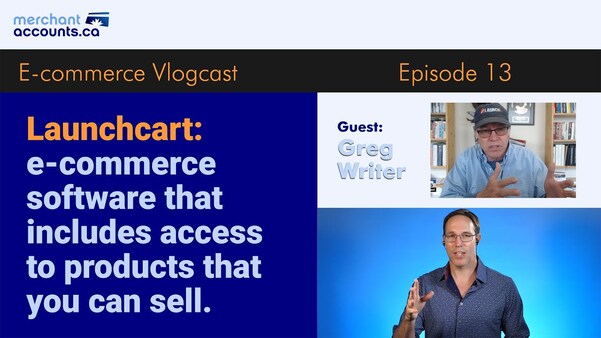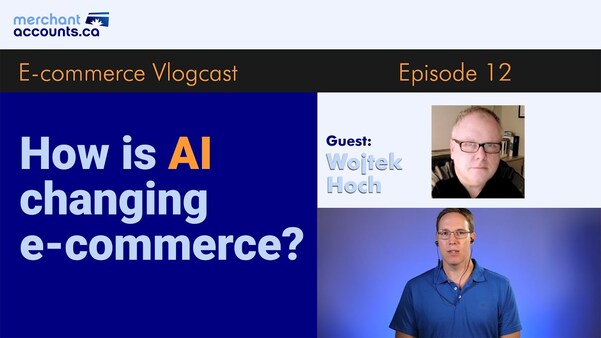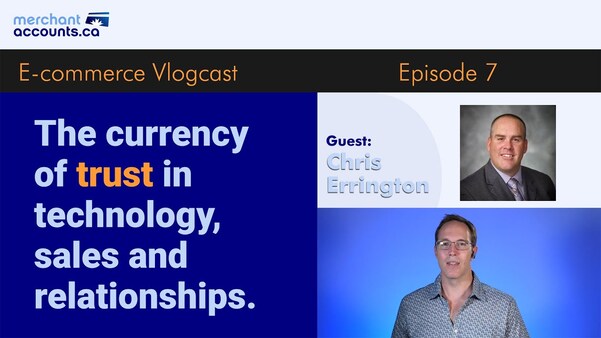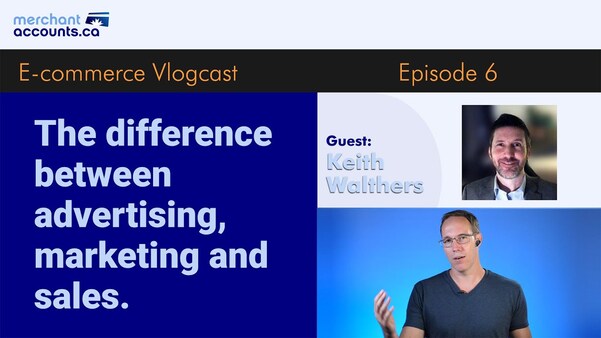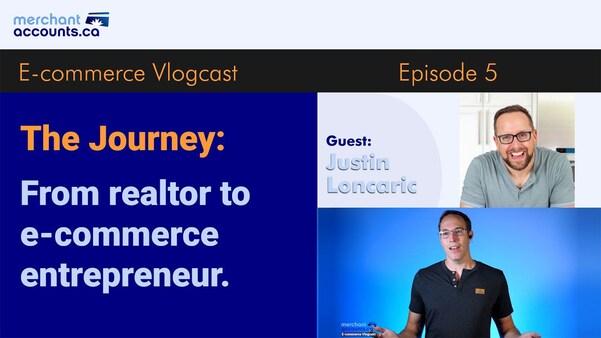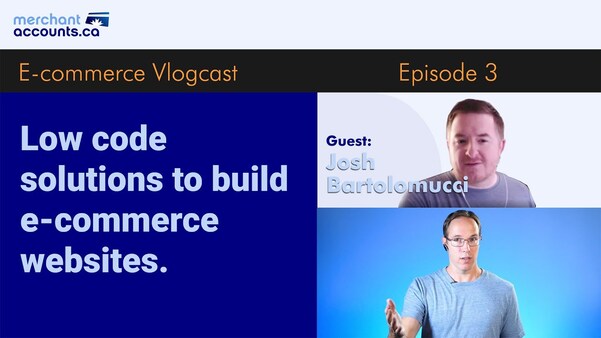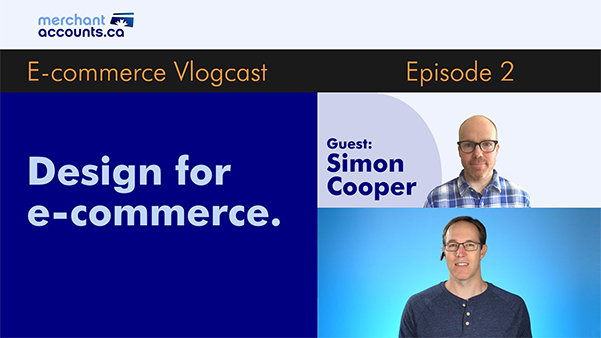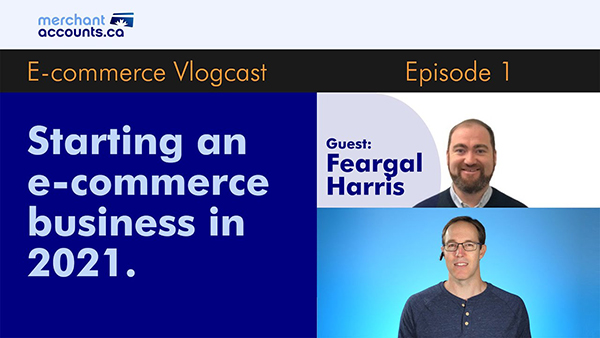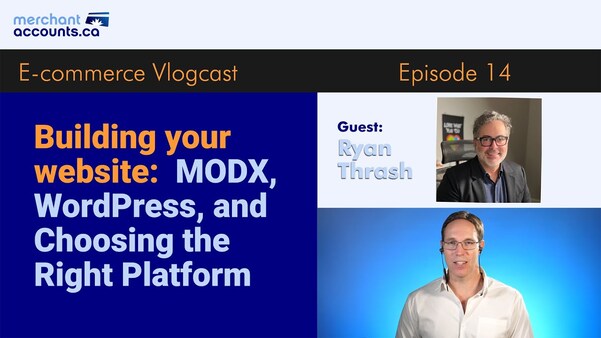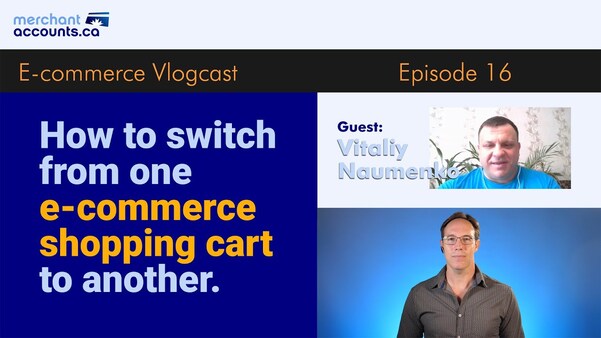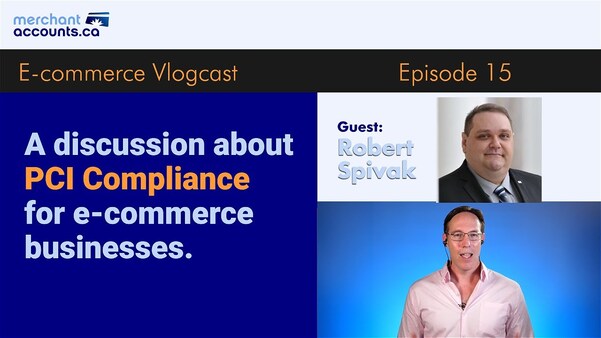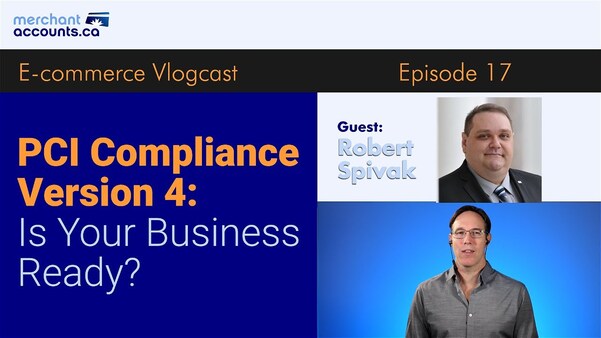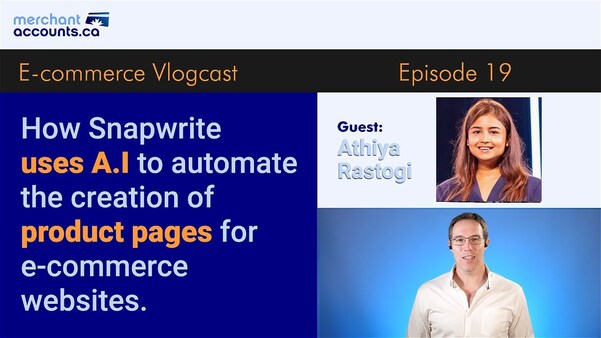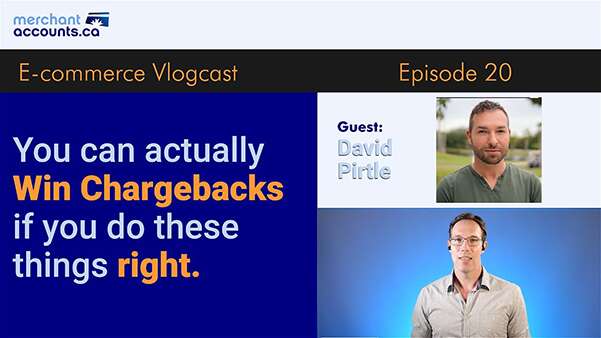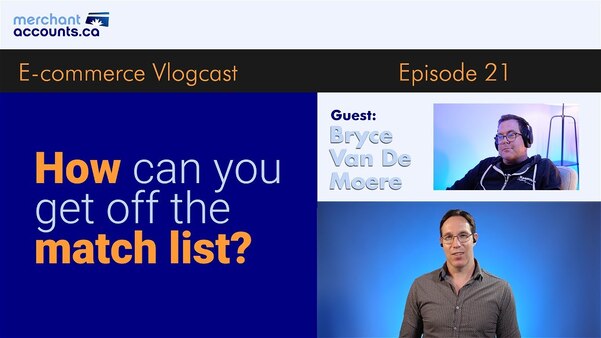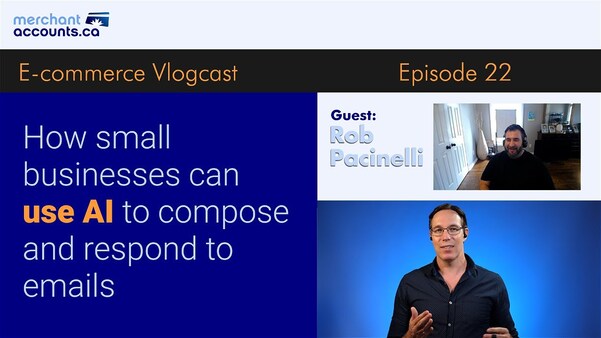September 18, 2023
by David Goodale
How to Handle Tax, Duty and Shipping When doing International E-commerce
(Slightly edited from video transcript for greater readability)
David Goodale:
Hello, David here at Merchant-Accounts.ca with another episode of the podcast. Today we're talking about how to win more international shoppers by making tax, shipping and duty easier. The ability to target international customers is one of the main benefits of having an e-commerce store. You have a huge number of potential customers from all around the world, but targeting international customers does have its challenges such as payment, currencies, language, and the one we're focusing on today, which is shipping your product internationally and getting it physically into customer's hands. Today I'm speaking to Kat Dej-Panah at Zonos.com. Kat is the strategic partner manager and is an expert on addressing the challenges around tax shipping and the hassles that can cause frustration for your customers. Kat, thanks for joining today.
Kat Dej-Panah:
Thank you.
David Goodale:
Perfect. I'm just going to jump right in. Back in the day, e-commerce was the Wild West, Governments had no idea how much tax to charge or if it should even be charged. It's not the case anymore though, is it?
Kat Dej-Panah:
No. A lot more of our governments around the world are seeing the benefits and the revenue generation that comes from those import taxes and duties. It's still a little wild, but we're seeing packages moving across borders and they're getting stopped. They're getting checked and they're getting assessed duties, taxes, and appropriate fees.
David Goodale:
Right. if you don't comply with those rules, like you collect the wrong amount or you don't collect anything at all, how big of a problem is it? Like who gets penalized you or the customer?
Kat Dej-Panah:
It sort of depends on how badly you break the rules. Generally, it tends to be a pretty yucky experience as an international shopper. If you get asked to pay those taxes again or if you paid in advance and then the package arrives and you're asked to pay a second time there can be a lot of issues. At the end of the day, our online retailers can also see a lot of penalties depending, on what they do. Even misclassifying your items and saying that they have a different country of origin can lead to some large penalties and being banned from importing into those countries. There's a lot of consequences for not following the rules.
David Goodale:
That makes sense. I can talk a little bit about that. Just like in the tax code domestically, one of the most important things that you want to avoid is you don't know what you don't know and you don't want a big penalty for something that you were ignorant of. Duties and international tax and all that stuff is very much along, along those lines. I know there's duties and there's an old Seinfeld episode where Kramer's saying that nobody knows what duty is. I think a lot of people might agree. What are the fees that merchants run into when shipping internationally?
Kat Dej-Panah:
Well, its duties are essentially another tax, for simplified purposes. There are a lot of terms that we use in international they're called incoterms and there's a vocabulary of definitions that we use. For today we'll just keep it in basic general vocabulary and avoid those terms. You can think of a duty as another tax. Shipping internationally, you can run into all sorts of fees depending on who's doing the shipping, and what happens when that product arrives in another country, If you're shipping with a carrier, they may elect to transfer the clearance to a different broker. In that case, you would incur that broker's fee, or the carrier themselves will have a different broker for doing the clearance and the paperwork for getting that package over the border and paying those duties and taxes to the ultimate tax authority in that country.
Kat Dej-Panah:
There are all sorts of different fees depending on how you ship it internationally too, that those carriers may charge. Then those countries will have those taxes and then those duties depending on what the product is, that duty can be a very high percentage. In some countries, they use that as a way to block products that are competing with their domestic items. In some cases, we've seen a high percentage of a duty rate because a country doesn't want to import that product. After all, it's competing with their product and their businesses in their country.
David Goodale:
Maybe that was like, and had total area, but Canada was in dispute with the US over milk or lumber. Or stuff like that, at some point. I think I know what you're talking about there.
Kat Dej-Panah:
That comes up all the time. Yeah.
David Goodale:
Kat, when you ship something and something goes wrong, for example, unexpected duties or maybe the duty just happens to be expensive, the customer wasn't expecting it. If the customer doesn't end up accepting the package, I guess you lose the item or it has to be shipped back to you.
Kat Dej-Panah:
Essentially. Yes. When you are an online retailer and you have a customer that's in a different country than you are and you're shipping your product to them, you rely on your carrier to get that product across the border. There are a few ways you send that item. You can send the item with the duties and taxes paid for in advance. You can use Zonos to help you calculate that, collect it from the customer, and then it's a seamless pro process. When that package enters their country, they don't have to pay the taxes again. If you ship it duties and taxes are unpaid. The duties and taxes would fall on the end recipient. They've paid for the product; they've probably paid for shipping. You send that product out; it arrives in their home country and they have to pay again to receive it.
Kat Dej-Panah:
If there is a high duty percentage on that, if it's an expensive product and just by nature of percentages they're being asked to pay again another hundred euros or something for that product, it can make for a not pleasant experience. Sometimes they'll say, you know, ultimately maybe I don't need this. In those cases, you have to work with your shipping carrier to either get that product sent back to you, or in some cases they end up getting destroyed in the home country because it's not worth it to pay for shipping to get that back. Then in many cases, your carrier will also charge you for the warehousing fees until things are determined with that product. There are a few ways that it, can go wrong and end up with an unpleasant experience for your customer. As you know, in online retail, making your customer upset, it it's way worse than just being able to have an easy happy customer. They're going to complain and write a negative review.
David Goodale:
Exactly. The cost of acquisition is so high, the lifetime value is so valuable. The last thing you want to do is mess it up. I'll bet you there are some other things to be aware of too. This is something that I know in some countries in the Caribbean, I always think this is funny, it's illegal to wear camo. I'm guessing that, is it also illegal to ship things to certain countries.
Kat Dej-Panah:
Yes. camouflage items are illegal to ship to a few countries. Some countries have restrictions on knives and there are some obvious ones like weapons can have different taxes. Alcohol has an excise tax that gets added on. There's, in some cases it's just an extra tax to get those products in. In some cases, those products are prohibited. It's illegal to bring them in. Understanding prohibitions and restrictions is also important. When you're shipping something internationally, you don't want to accidentally send something to a country just because, you know, you have a cool camouflage shirt and somebody in that country wanted to buy it and didn't know the rules.
David Goodale:
Well, like exactly. Like all of this compliance tax, you don't accidentally do something illegal. I know that here, I know a phrase, I know the words harmonized, tariff codes and I know there's about 22 trillion of them. My question is, if you have an online store with like a ton of items, it might get complicated and I know Zonos is trying to make that easier. Maybe can you talk about how everything is assigned, like a tariff code, and how Zonos, let's just pick a general goods site where you might have like literally a thousand different products. Could be an electronic store, it could be like a mouse, an Xbox, yeah, a Bluetooth headset. How do you make that easier?
Kat Dej-Panah:
Oh yeah, we even see folks that have, an online store and they sell kitchen goods. That could be anything from the knives we mentioned before, to utensils, to plates, to even food items and seasonings, which all come into different classifications. A harmonized tariff code sometimes called an HSS code is just a numeric number that's assigned to a product that helps alleviate language barriers. It let's, everyone who's involved with the moving of that product know what's in the package. What is this item? Is it a T-shirt? Is it a T-shirt made of silk? Is a shirt made of cotton? Are these shoes made of leather? Usually, you talk about harmonized codes and then there's a country of origin. Where was it made not necessarily where it's shipping from, but where the product was put together with harmonized tariff codes.
Kat Dej-Panah:
They can be complicated. recently there have been some new regulations in Europe at the beginning of 2023 where we have seen there's a heightened check for that. previously you may have been able to get away with shipping things without having that code on there. Not anymore. You do need to have that item with the harmonized code. The code needs to somewhat match the description. Zonos can help with that. We have a product called Classify that uses natural language processing to figure out your HSS code based on your product description. As you know, in online retail, your product description plays into SEO you need to be able to describe your product for the end customer too. sometimes those descriptions don't always match apples to apples to harmonize tariff codes.
Kat Dej-Panah:
One example that we've seen is a brand may sell a type of shirt and they're all colors that are named after fruit. We have a banana shirt and a lemon shirt. Oh right, something like that. Going into another country, a customs agent translating just sees bananas, lemons, and strawberries having the hook correct harmonized code and the product description on your commercial invoice as a t-shirt. Because They don't care about the color necessarily. Right. We can help with that sort of cleanup. Your harmonized code is more important now than it's ever been, I would say because it is required for proposal shipments into Europe. It is something that makes the process significantly easier. It's not just having a code but having the correct code.
David Goodale:
Can I cut in, undercut right on that point because, I'm so interested in this and so whenever you're trying to make something, how do you make something complicated, easy? Usually, it's hard. But, you know, if a lot of thinking is done, and I know that's a lot of what Zonos does and the expertise. If you have an online store with this big catalog, I want to think of it for the, viewer about like, if I had to roll up my sleeves, is this a month of work, a week of work, a day of work? What I want to know is if you have an online store and you want to like, make Zonos do this stuff for you, how do you get it integrated, how do you prep your store and how much work is it? That's what I'm kind of asking.
Kat Dej-Panah:
Oh Yeah, for us it's relatively easy because we have our plugins on the e-commerce side. We also have APIs. you, we can use your already existing product catalog, do an upload give you a classification and just ping on a few that might need human eyes. But if you have 10,000, we could get those classified in a bulk upload. We can also classify off of an image. There are a few different ways that we can make this easy and seamless. Most of what you need to work with Zonos and get help for this international is the same stuff you've already got set up in your store for your domestic. You have a shipping carrier; you just need to make sure that they can ship to the countries you want to go to. Then for your product catalog, it's pretty easy to just run it through our system and get your harmonized tariff codes back.
David Goodale:
Is your system kind of like a Google, let me phrase this so this makes sense. When I have an online store Google can spider the website, it can see, this is a T-shirt, these are the sizes, is that what you're talking about? Like do you need an API to talk and send information to Zonos or is Zonos somehow spidering or indexing things? Then even if you did, you'd still have to give the information back to your system somehow. Maybe you could walk me a little bit through the practical approach.
Kat Dej-Panah:
Oh, sure. It would be cool if we could improve the site. We don't, we connect through API we also have a dashboard interface. Folks can do one-off checks for codes. Sometimes you just have one particular product that's different. Maybe you're doing a collaboration and you're launching something and it's the only update you need. In some cases, you may be acquiring another store and expanding your product and you've got, a big catalog that needs to get uploaded. You can upload that through the dashboard interface or as I said, you can connect through our APIs as well.
David Goodale:
Interesting. In terms of, shipping is there any particular advice that you have for e-commerce merchants, things that surprise you when you talk to them that they're not aware of or they're, or they're not doing?
Kat Dej-Panah:
I think the biggest advice I would have been to make your store provide a seamless experience for all your shoppers. If you've got it set up for domestic and there's nothing that indicates to me that you're going to ship to my country, I'm not likely to purchase from you. Because if you have to get to the checkout and put in your address and then just get kicked out, that's not a pleasant experience. In e-comm it's all about being able to click and get to the checkout. We want to add products to our cart check out quickly and then get our products fast. Whatever you can do to make that as seamless. Experience, translation, services even updating your FAQs, letting people know that you will ship to their country. There are a lot of options that especially now there are so many apps and plugins and ways that you can customize your store in a way that every shopper, no matter where they're coming from, feels like you are selling products just to them.
David Goodale:
That's really good advice. you're speaking to a Canadian and you being American, you probably don't run into this as often, but being Canadian, you're on websites. If I wanted to buy a camera or I write electronic music as a hobby terribly, but I like it. If I'm buying a synthesizer or something, I'm always like, well these guys shipped to me. You're combing through the website Because you don't have to add to the cart and that's very interesting. Because you gave me some good, interesting advice, I'm going to give you one more question here and I ask a lot of my guests on the podcast this question, I'm just giving you carte blanche to go in any direction. I always ask, what secret advice would you give any new e-commerce or not even new give an e-commerce business owner? Do you have any secret tips or advice?
Kat Dej-Panah:
Ooh, that's a good question.
David Goodale:
I don't always tell people I'm going to do it. Not on the hot seat, but if you have anything you kind of just gave me one, to be quite honest, that qualified.
Kat Dej-Panah:
I think really whatever you can do to make it easy for your shoppers to be clear and make you I have to guess if this product is big enough if I have to guess, if this pro if you're going to ship to me if I don't understand what's happening in the cart, I'm going to abandon the cart. It's not worth it to me. Having that clear information, what do you, what are you selling me? How big is it? How fast is it going to get to me and how much is it going to cost? I think sometimes we overlook that stuff. Just really clear communication to your customers.
David Goodale:
That makes sense because you know what, and I'll just rephrase it back to you. Doubt, concern or lingering kills sales. Your customer has to be confident. You have to earn their trust. I love that advice. yeah.
Kat Dej-Panah:
I want to feel like you ship to my country all the time. I want it to feel like a domestic experience when I'm buying that red pair of boots that I need that's coming from Europe or wherever in the world. Perfect.
David Goodale:
I want to talk about Zonos one more little bit. If people are like, hey, look, I do ship internationally. I'm sold on this idea. I want to make it easier for my customers, but I'm a little bit worried about getting this going. Can you tell me what platforms Zonos supports and how they could get in touch with, you guys if they wanted to learn more? Oh Yeah, absolutely.
Kat Dej-Panah:
Our website is zonos.com. We are on Shopify, BigCommerce, Magento, X Cart, Salesforce Commerce, and WooCommerce. If none of those platforms work for you on the plugin side, we can also connect via API we can work with anybody.
David Goodale:
Kat I'm going to guess it's not your first day at Zonos. You have that list, right?
Kat Dej-Panah:
Being employees at Zonos, we have a hundred-question assessment that we all need to take and pass with a hundred percent. Is it the passing grade? Yeah, it's ingrained in us here at Zonos.
David Goodale:
Perfect. if you're watching, check out zonos.com if you want to learn more. Kat, this has been a great insight advice session for people who ship internationally. I wanted to thank you for coming on today. Thank.
Kat Dej-Panah:
You very much.
David Goodale:
Thanks. Have a great day. Bye now.
Need professional guidance?
Contact us for a free one hour consultation.
Can I Help Lower Your Processing Fees?
If you found this content helpful, will you give me the opportunity to quote on your business?
View Rates


